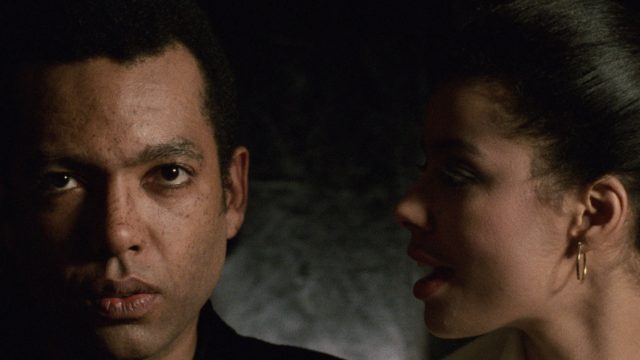Chameleon Street: 1,001 Voices, by David Bax

Wendell B. Harris Jr.’s Chameleon Street has the feel of a one-man show. Obviously, film is a collaborative medium and others contributed to the movie’s making (look no further than Daniel S. Noga’s soft but stately cinematography, which makes many scenes look like commercials for something expensive, a wry way to shoot a movie about a con man). But as writer, director and constantly on-camera star, Harris is obviously the chief shaper of the product here. But there’s more to it than that. It ultimately comes down to his performance. He’s so commanding in his presence, his look, his direct but always slightly bothered way of speaking, that you’ll just want to follow him the same way so many in the film to do his character, a self-possessed con artist named William Douglas Street.
Street is a real guy, by the way, a master impersonator and schemer who has fooled people into thinking he was, among other things and at various times, a professional athlete, a lawyer and a doctor (he is said to have performed several successful surgeries under the guise of the latter). But Chameleon Street is not Catch Me If You Can and Harris is certainly not Steven Spielberg in his summation of America. The film is primarily a comedy–if a bitter and sardonic one–about the flimsiness of the social and professional systems that we allow to govern our lives.
Chameleon Street, which won the Grand Jury Prize at the 1990 Sundance Film Festival, is somehow Harris’ only film as director. That’s a shame because his talents don’t stop at acting and writing. Montage flights of fancy dot the movie’s landscape while other scenes are punctuated with bold close-ups that fortify Street’s command.
That’s not to say that Harris portrays Street as above it all or as someone who has everything figured out. The character’s interpersonal relationship problems are not glossed over, for one thing. Really, there’s only one thing he’s actually figured out but, to him, it’s the main thing: The entire world is just bullshitters bullshitting each other and he just needs to be the one to do it best.
At least, that’s the surface read. Subtextually, there is the strong suggestion that Street, as a Black man, is particularly well-suited to the life of a chameleon because adapting to new situations for survival is already a part of his daily life. And the movie finds that rancorously amusing. It’s tragic that Chameleon Street is a one-off (so far; Harris has reportedly long been working on a follow-up) because it represents a wholly unique American voice.



























